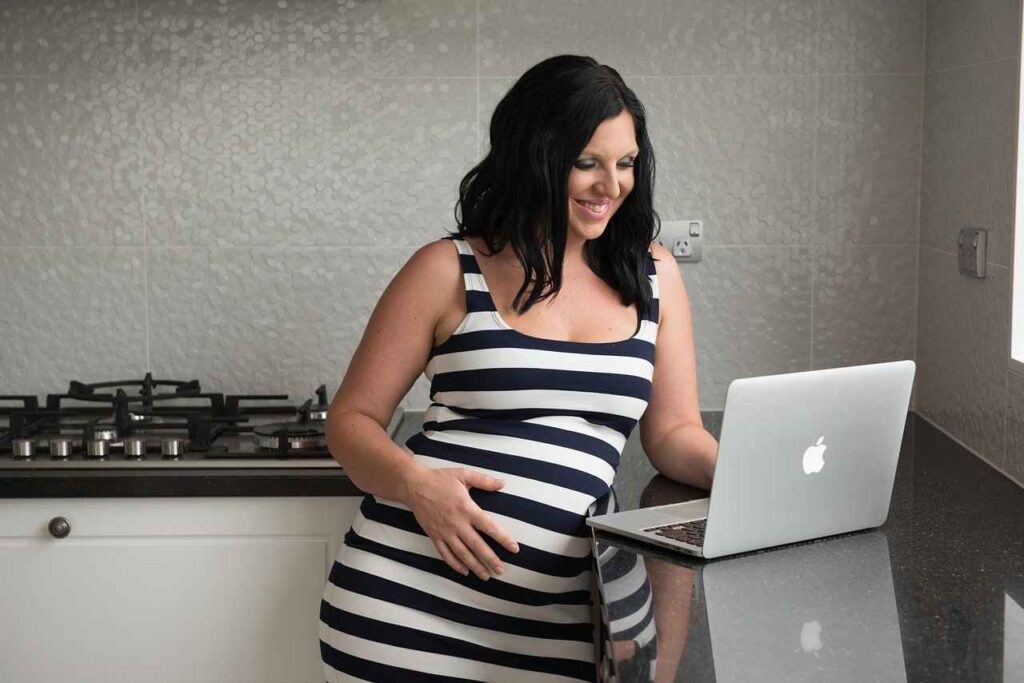When I first experienced the telltale symptoms of a urinary tract infection (UTI), I never imagined that the cause could be something much more significant. I was in for quite the surprise when I discovered I was actually pregnant! In this article, I’ll share my personal journey, discuss the similarities between UTI and early pregnancy symptoms, and provide some helpful tips for other women who may be going through a similar experience.
My UTI Symptoms Turned Out to Be Pregnancy
It all started with the familiar discomfort of a UTI: frequent urination, burning sensations, and lower abdominal pain. I’d had a few UTIs in the past, so I was convinced that’s what I was dealing with. However, after a visit to my doctor and a pregnancy test, I found out that I was expecting.
Similarities Between UTI and Early Pregnancy Symptoms
Many women may not realize that UTI symptoms can sometimes mimic early pregnancy symptoms. Here are some common symptoms that both UTIs and early pregnancy share:
Frequent urination: Both conditions can cause the need to urinate more often than usual.
Lower abdominal pain: This can be a sign of a UTI, but it can also be caused by the uterus expanding during early pregnancy.
Fatigue: Both UTIs and pregnancy can cause a feeling of being tired or worn out.
Nausea: Though more commonly associated with pregnancy, some women with UTIs may also experience nausea.
Differences Between UTI and Early Pregnancy Symptoms
Despite the similarities, there are also key differences between UTI and early pregnancy symptoms:
Burning sensation during urination: This is a classic UTI symptom and is not typically associated with pregnancy.
Cloudy or strong-smelling urine: These are signs of a UTI and not generally experienced during early pregnancy.
Missed period: A missed period is a strong indicator of pregnancy but is not related to a UTI.
Breast tenderness is a common early pregnancy symptom but is not associated with UTIs.
What to Do If You’re Unsure
If you’re experiencing symptoms that could be indicative of either a UTI or pregnancy, it’s essential to consult a healthcare professional. They will likely recommend a pregnancy test and possibly a urine test to determine the cause of your symptoms. It’s important to get an accurate diagnosis, as the treatments for UTIs and prenatal care are vastly different.
Preventing UTIs During Pregnancy
Pregnant women can be more susceptible to UTIs due to hormonal changes and the physical pressure on the urinary tract. Here are some tips for preventing UTIs during pregnancy:
Stay hydrated: Drinking plenty of water can help flush out bacteria from the urinary tract.
Urinate frequently: Don’t hold your urine for extended periods, as this can increase the risk of infection.
Wipe front to back: This helps prevent the spread of bacteria from the rectal area to the urethra.
Avoid irritants: Steer clear of harsh soaps, bubble baths, and scented feminine products, as they can irritate the urinary tract and increase the risk of infection.
My Surprising Journey and Lessons Learned
My journey from thinking I had a UTI to discovering I was pregnant was certainly unexpected. Throughout the process, I learned about the similarities and differences between UTI and early pregnancy symptoms. I also realized the importance of seeking medical advice when in doubt about the cause of my symptoms. This experience taught me that our bodies can be full of surprises, and staying informed and proactive about our health is crucial.
Conclusion
In conclusion, it’s essential for women to be aware of the similarities and differences between UTI and early pregnancy symptoms. If you’re experiencing symptoms that could indicate either condition, consult with a healthcare professional to receive an accurate diagnosis and appropriate treatment. By staying informed and proactive about our health, we can better navigate the surprises life throws our way and ensure the best possible outcomes for ourselves and our growing families.
FAQ 1: Can UTI symptoms be mistaken for early pregnancy symptoms?
Answer: Yes, some UTI symptoms, such as frequent urination, lower abdominal pain, fatigue, and nausea, can be similar to early pregnancy symptoms. However, there are also key differences between the two, such as a burning sensation during urination and cloudy or strong-smelling urine, which are more indicative of a UTI.
FAQ 2: How can I tell the difference between a UTI and early pregnancy symptoms?
Answer: While there are some overlapping symptoms, there are also notable differences. A missed period and breast tenderness are common early pregnancy symptoms but are not associated with UTIs. If you’re unsure, it’s essential to consult a healthcare professional, who may recommend a pregnancy test and possibly a urine test to determine the cause of your symptoms.
FAQ 3: Can pregnancy increase the risk of UTIs?
Answer: Yes, pregnant women can be more susceptible to UTIs due to hormonal changes and physical pressure on the urinary tract. To reduce the risk of UTIs during pregnancy, it’s important to stay hydrated, urinate frequently, wipe front to back, and avoid irritants such as harsh soaps and scented feminine products.
FAQ 4: If I’m pregnant and suspect a UTI, what should I do?
Answer: If you’re pregnant and experiencing symptoms that may indicate a UTI, consult with your healthcare provider as soon as possible. They can diagnose the issue and recommend appropriate treatment. Prompt treatment of UTIs during pregnancy is essential to prevent potential complications for both the mother and the baby.
FAQ 5: How can I prevent UTIs during pregnancy?
Answer: To prevent UTIs during pregnancy, ensure that you stay hydrated by drinking plenty of water, urinate frequently and avoid holding your urine for extended periods, wipe front to back after using the toilet, and steer clear of irritants such as harsh soaps, bubble baths, and scented feminine products.
